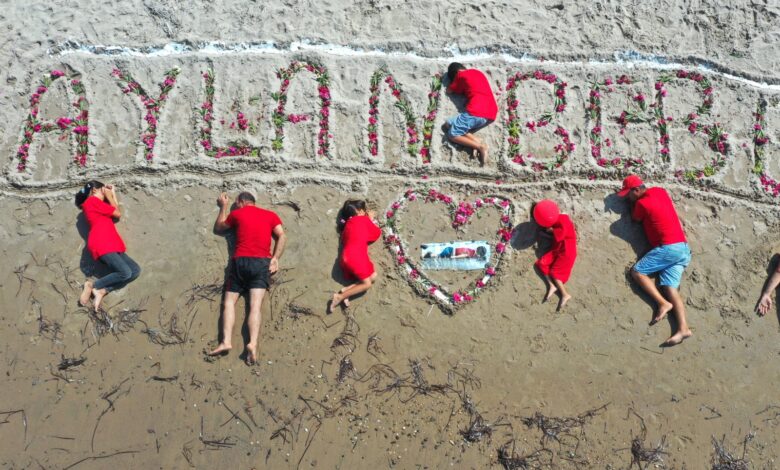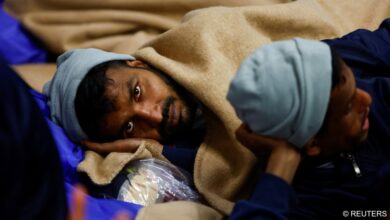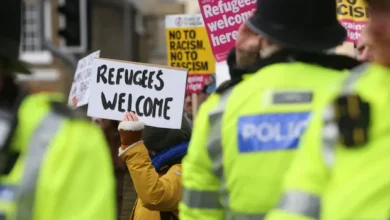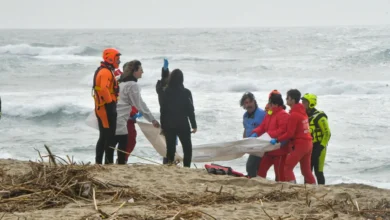Syrian toddler Alan Kurdi’s death still haunts Turkish beach

BY DAILY SABAH
It has been seven years since the lifeless body of Syrian boy Alan Kurdi washed ashore on Türkiye’s Aegean beaches, but the crisis prevails as migrants continue to set sail seeking a better life in Europe
Three-year-old Syrian boy Alan Kurdi became a posthumous poster child of the plight of thousands of migrants making their way to Europe under constant danger. Today, the beach where his body was found is largely clear of migrants, though people like his family still pursue their Europe dreams, despite more challenges along the way.
When Kurdi died in a sinking boat on Sept. 2, 2015, a rough sea and unsafe dinghies were the only dangers migrants faced. Now, Greece pushing back migrants add to their woes.
Kurdi was the youngest victim among five others, including his elder brother and mother who died aboard the sunken dinghy.
Thousands of people from the Middle East, Asia and Africa seeking a better life in the European Union head to Greece every year from Türkiye, which hosts about 4 million refugees. Most then try to move on to Europe’s more prosperous heartland.
According to the United Nations High Commissioner for Refugees (UNHCR), nearly 8,000 people have reached Greece so far this year. Most set off from Türkiye. Earlier this month, President Recep Tayyip Erdoğan said that Türkiye saved the lives of 41,000 people “who were left to die by Greece in the last two years” thanks to the efforts of the Coast Guard units, who prevented deaths in the Aegean. Erdoğan said the overall number of irregular migrants apprehended by the Turkish Coast Guard has reached 245,000, adding the gendarmerie continues its fight against irregular migration and human traffickers.
Türkiye has been a key transit point for asylum-seekers aiming to cross into Europe but Greece’s illegal practice of “pushback” aggravated the risks migrants faced, while Ankara and global rights groups have repeatedly condemned the practice, saying it violates humanitarian values and international law by endangering the lives of vulnerable migrants, including women and children.
Other than pushbacks, few things have changed for migrants since Kurdi’s death. War in Syria which forced his parents still rages on. Syria has been mired in a vicious civil war since early 2011, when the Bashar Assad regime cracked down on pro-democracy protests with unexpected ferocity. U.N. estimates show that more than 8 million Syrians have either been internally displaced or become refugees in other countries since 2011. The wave of migration from Türkiye faded in the past two years, amid the COVID-19 pandemic and for Syrians, the relative safety in northern parts of their homeland thanks to Türkiye-backed counterterrorism operations. Nowadays, the plight of migrants is overshadowed by the crisis in Ukraine, where another war has been raging since February.
But Alan Kurdi’s death remains a grim reminder of little action other countries did to stamp out the causes of mass migration to Europe. Though European Union poured millions into addressing the needs of migrants, it is largely confined to the care of migrants in countries they first take shelter, in this case, Türkiye. Most has limited admission of migrants fleeing wars and poverty.
“It was the shame of humanity that washed ashore on this beach,” Ömer Sarıkaya, who was among the activists gathered on the Fenerburnu coast in Bodrum to commemorate Kurdi, told Anadolu Agency (AA). Sarıkya, who directed a film on the short life of Kurdi, joined others as they all lay on the beach, wearing red t-shirts like Kurdi did, next to the flowers they laid in his memory. “The biggest part of this shame falls on the United Nations,” Sarıkaya said, criticizing the international community for failing to tackle the migrant crisis.




